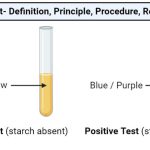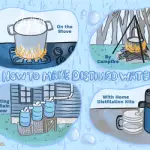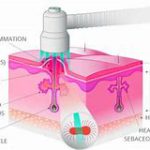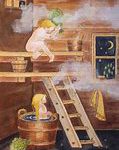Last Updated on 1 year by Francis
With the recent focus on sustainability and the environment, many people are turning to natural sources of water like rainwater to meet their needs. But can you actually drink rainwater and is it safe? In this article, we’ll explore the potential health risks and benefits of drinking rainwater and help you decide if it’s the right choice for you.
- How to purify rain water?
1. Boil the water for at least one minute.
2. Filter the water through a cloth, paper towel, or coffee filter.
3. Treat the water with a few drops of bleach or a pinch of iodine crystals.
| Rain Water vs Tap Water | Rain Water | Tap Water |
|---|---|---|
| Safety | Generally safe if purified | Generally safe with regular testing |
| Availability | Not always available | Readily available |
| Cost | Free | Varies |
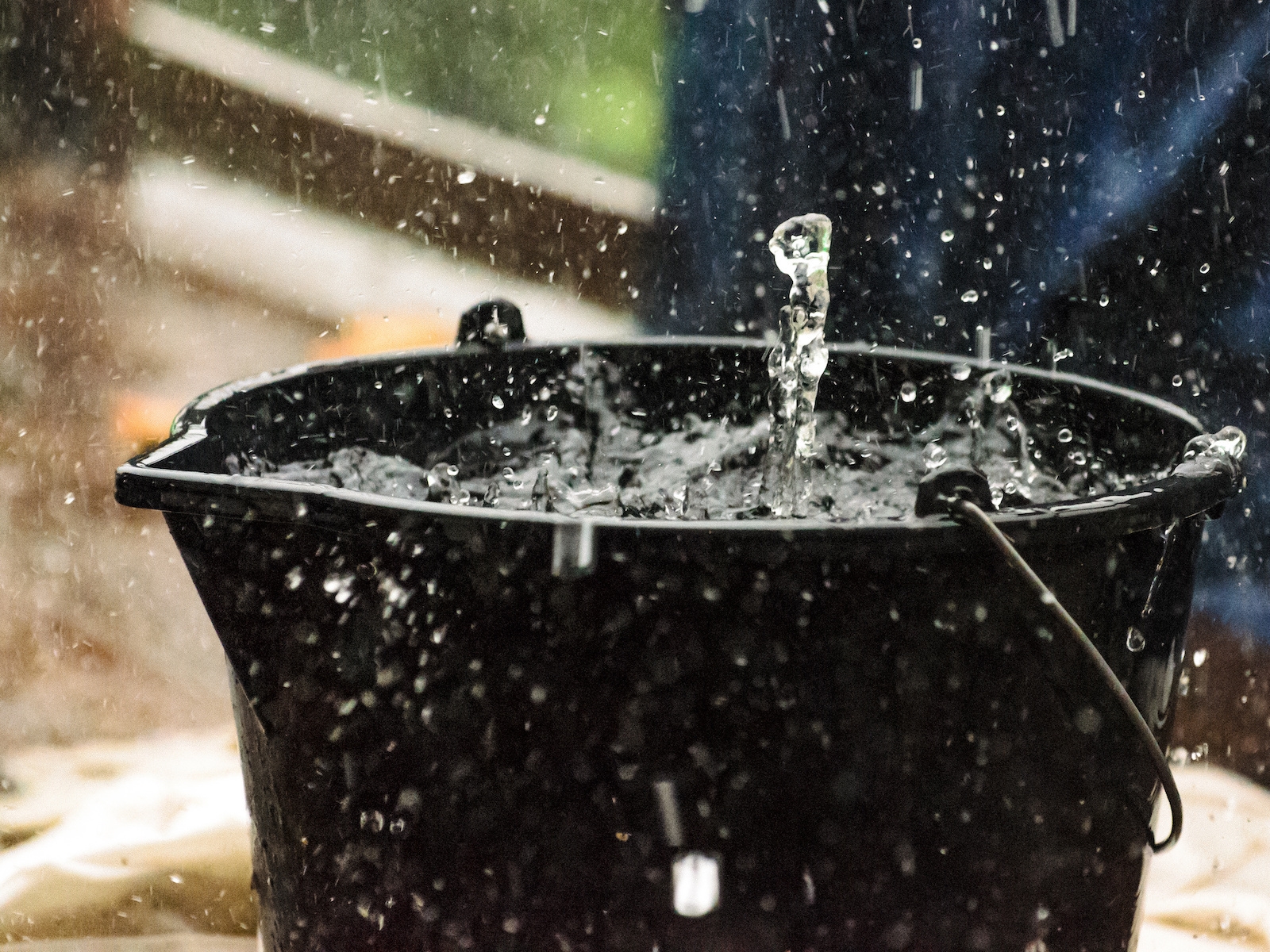
Contents
Can You Safely Drink Rainwater?
Rainwater can be a safe and reliable source of drinking water in some circumstances, but in others, it can pose serious health risks. The safety of drinking rainwater depends on several factors, including the location of the water source, the water’s filtration and treatment, and the surrounding environment.
Rainwater is typically safe to drink if it comes from a clean source, such as the roof of an uncontaminated building. In these cases, the water should be filtered and treated before drinking, to remove any contaminants or bacteria. Rainwater can also be collected in containers and made safe to drink through filtration and boiling.
However, rainwater that has been in contact with soil or vegetation can be contaminated with various pollutants and pathogens, and should not be consumed without proper treatment. In these cases, it is best to collect rainwater in a covered container and treat it with a water filter or purifier.
Is Rainwater Clean or Contaminated?
Rainwater is generally clean, as it is naturally filtered by the atmosphere before it reaches the ground. However, it can become contaminated by pollutants on the ground, such as chemicals, heavy metals, and bacteria. Pollutants can come from vehicles, factories, farms, and other sources.
Rainwater can also contain pollen and other allergens, which can cause allergic reactions in susceptible individuals. In addition, rainwater can pick up minerals and salts from the atmosphere, which can give it a strong taste and make it unsuitable for drinking.
What Are the Benefits of Drinking Rainwater?
Rainwater can be a healthier and more sustainable option than tap water in some areas. Tap water can contain contaminants, such as chlorine and fluoride, which are added to make the water safe for drinking. In addition, tap water can contain chemicals from pipes and plumbing systems, which can have a negative impact on health.
Rainwater is also free of any additives, and it is naturally soft and low in minerals. This can make it more pleasant to drink than tap water, as it has a milder taste and does not leave behind a chalky residue.
How to Collect and Treat Rainwater for Drinking
Rainwater can be collected from a rooftop or other uncontaminated surface, such as a shed or balcony. The water should be collected in a container that is covered to protect it from contamination. Once collected, it should be filtered and treated to remove any pollutants and pathogens.
Filtering Rainwater
Rainwater should be filtered to remove any particles, bacteria, and other contaminants. There are various types of filters available, such as activated carbon filters, reverse osmosis filters, and ultraviolet light filters. Filters can be installed in the collection container or on the end of the tap, for use with a watering can or hose.
Treating Rainwater
Rainwater should be treated to make it safe for drinking. This can be done by boiling the water for at least one minute, or by adding chlorine or iodine to the water. Boiling is the safest option, but it can be time-consuming and costly. Alternatively, chlorine or iodine tablets can be added to the water, but this should only be done if the water is free of particles and sediment.
How to Tell if Rainwater is Safe to Drink
Rainwater can be a safe and reliable source of drinking water if it comes from a clean source and is properly filtered and treated. To ensure the safety of rainwater, it should be tested for contaminants before drinking.
Testing Rainwater
Rainwater should be tested for contaminants before drinking. This can be done by an approved laboratory or by using a home test kit. Test kits can be used to detect contaminants such as bacteria, chemicals, and heavy metals.
Cleaning and Maintaining Rainwater Collection Systems
Rainwater collection systems should be regularly cleaned and maintained to ensure that the water is safe for drinking. The collection container should be cleaned and disinfected every six months to remove any build-up of bacteria or contaminants. The filter should also be checked and replaced regularly to ensure that it is functioning properly.
Frequently Asked Questions
Can You Drink Rain Water?
Answer: Yes, it is generally safe to drink rain water. Rain water is naturally purified as it passes through the atmosphere, collecting microscopic particles of dirt, dust and other pollutants along the way. This natural filtration process helps to make rain water safe to drink in most cases. However, it is important to check the source of the rain water, as some can be contaminated with pollutants, chemicals, and other toxins.
What Does Rain Water Contain?
Answer: Rain water contains a variety of microscopic particles, such as dirt, dust, pollen, and other pollutants. It also contains dissolved minerals from the atmosphere, such as nitrogen, sulfur, and phosphorus. As rain water passes through the atmosphere, it collects these particles, which can make it safe to drink in most cases.
Is Rain Water Safe to Drink?
Answer: Generally, rain water is safe to drink as long as it is collected from a clean source. The natural filtration process that occurs as rain passes through the atmosphere helps to purify it, removing most pollutants and toxins. However, it is important to check the source of the rain water, as some can be contaminated with pollutants, chemicals, and other toxins.
What Are the Benefits of Drinking Rain Water?
Answer: Drinking rain water can offer many benefits. It is naturally purified, so it can be a great alternative to tap water. It also contains dissolved minerals from the atmosphere, such as nitrogen, sulfur, and phosphorus, which can be beneficial for health. Additionally, drinking rain water can help to reduce your environmental impact, as it is a renewable and sustainable source of water.
Does Rain Water Need to Be Treated Before Drinking?
Answer: Generally, no. Rain water is naturally purified as it passes through the atmosphere, removing most pollutants and toxins. However, it is important to check the source of the rain water, as some can be contaminated with pollutants, chemicals, and other toxins. If you are concerned about the safety of the rain water, you may want to consider treating it with a filter or boiling it before drinking.
Are There Any Risks Associated with Drinking Rain Water?
Answer: There are some potential risks associated with drinking rain water. If the rain water is collected from a contaminated source, it can contain pollutants, chemicals, and other toxins that can be harmful to your health. Additionally, rain water can contain dissolved minerals from the atmosphere, such as nitrogen, sulfur, and phosphorus, which can be dangerous if consumed in large amounts. Therefore, it is important to check the source of the rain water and to consider treating it with a filter or boiling it before drinking.
IS RAIN WATER SAFE FOR DRINKING
Rain water is an easily accessible resource that can provide an environmentally friendly and low-cost alternative to other sources of drinking water. While drinking rain water can be beneficial, it is important to remember that rain water can be contaminated with pollutants, and therefore it is best to use a filtration system or boil it before drinking. Ultimately, rain water can be a viable option for drinking water, but caution and care should be taken to ensure it is safe to consume.


